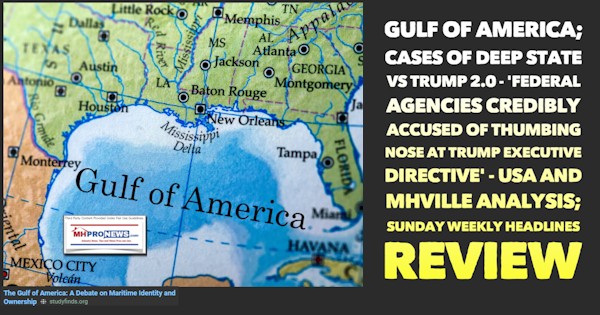
“President Donald Trump announced historic tariffs on April 2—“Liberation Day”—to ensure that America is no longer “looted, pillaged, raped, and plundered” by other nations,” said the Daily Signal, which provided the article that is the source of the headline topic presented in Part I below, are the following bio-in-briefs on the co-authors of that item. “Kevin Roberts, Ph.D., is president of The Heritage Foundation and Heritage Action for America and the author of Dawn’s Early Light: Taking Back Washington to Save America. Richard Stern is director of the Grover M. Hermann Center for the Federal Budget at The Heritage Foundation.” Roberts and Stern are calling for a “yes, and” strategy of tariffs plus tax and regulatory cuts and say that Congress must act in support of the Trump era 2.0 (T2) agenda. Part II provides additional information on Roberts, why the facts and commentary they presented are timely, plus more MHProNews analysis and MHVille-focused facts-evidence-analysis (FEA).
While the entire article by Roberts-Stern has useful insights, perhaps some particular attention should be paid to the regulatory portion of their insights as that has not been covered as well by many in mainstream media.
Part I
Commentary
Trump’s Tariffs Are Only the Start. Congress Must Now Cut Taxes and Regulations.
Kevin Roberts | Richard Stern | April 11, 2025
President Donald Trump announced historic tariffs on April 2—“Liberation Day”—to ensure that America is no longer “looted, pillaged, raped, and plundered” by other nations.
On Wednesday, the president announced a 90-day pause on the tariffs and lowered the tariff rate on most nations to 10%. He also raised tariffs on China to 125%.
His bold leadership, which quickly brought 75 countries to the negotiating table, he said, should be applauded. Clearly, his strategy is working: America is gaining leverage, and China is becoming more and more isolated.
While conservatives have been divided and disorganized about how to respond to the president’s policy, with almost all Republicans in Washington still watching from the sidelines, we’re calling on Americans to unify around a “yes, and” agenda.
That means saying yes to strategic, reciprocal tariffs that target China and other trade abusers—based on their barriers, not simply the balance of trade—as we work toward true free and fair trade.
And it means insisting that tariffs are most effective when paired with a broad array of conservative policies that alleviate economic pain on the American people. While Trump works to liberate us from foreign abuses, congressional Republicans must fight to liberate Americans from the burdens of federal regulations, mandates, and taxes.
Republicans Must Make Tax Cuts Permanent
First, we must not settle for extending the status quo on tax relief. Thanks to the majorities Trump delivered in November, Republicans must pursue deeper tax reform through reconciliation. Every penny raised from tariffs should be offset with pro-growth tax cuts.
Making the Tax Cuts and Jobs Act permanent is a good start, but we also must remove every remaining tax penalty on expanding hiring and business operations in America by adopting full and immediate expensing for all investments.
Pairing this with a simplified flat tax for all is even better. Congress should collapse the personal income and corporate tax rates to 15%.
Second, Congress should work alongside the Trump administration, using the reconciliation process, to transform the current 10% universal tariff into a true border-adjusted tariff. That means applying a universal 10% tariff on all imports, while granting a matching 10% credit to all American exports.
That isn’t just smart policy—it’s a long-overdue correction to a global tax system that has punished American industry for decades.
We’ve let foreign goods pour into our markets tax-free, while our manufacturers are taxed at home and slapped again abroad. That’s not free trade—it’s economic surrender. And no country has abused this broken system more brazenly than China, which has cheated on trade, exploited our openness, and gutted the U.S. industry while Washington looked the other way.
If we want to rebuild our economy, secure our supply chains, and end our dependence on adversarial regimes, then a border adjustment tariff must be part of the conservative economic playbook.
As a bonus, these revenues can be used to offset lost revenue from the lower tax rates we are calling for.
Congress Must Cut Federal Spending
Third, Republicans must finally get serious about cutting spending—not with half measures or messaging bills, but with real, structural reform.
Through reconciliation, Congress should significantly cut mandatory spending riddled with waste, fraud, and abuse.
Now is not the time to settle for the lowest common denominator, which is always a temptation in politics. If we are to undo the fiscal and inflationary damage done by the previous administration and decades of fiscal irresponsibility, we must go big and take advantage of this historic electoral mandate.
Then, through the appropriations process, we must slash the bloated discretionary budget that fuels the unchecked growth of the federal bureaucracy.
In the meantime, the Department of Government Efficiency must be fully unleashed to do its job—scrutinizing every dollar, rooting out inefficiency, and holding agencies accountable. This is how we restore fiscal integrity and prove to the American people that their government works for them, not the other way around.
Businesses Need Deregulation
Fourth, American enterprise must be unleashed through sweeping deregulation. For too long, unelected bureaucrats have imposed crushing rules that stifle innovation, punish small businesses, and expand government control far beyond its proper bounds.
It’s time for Congress to reassert its constitutional authority, starting by empowering lawmakers to roll back legacy regulations that have accumulated over decades of executive overreach by passing the REINS Act and the Sunset Act.
At the same time, the administration should lead a coordinated effort—through executive orders and agency rulemaking—to dismantle the regulatory state piece by piece.
Fifth, permitting reform is long overdue, and it’s time we treat it like the national priority it is. For decades, radical environmentalists and bloated bureaucracies have used red tape to delay, derail, and destroy American energy and infrastructure projects. The result? Higher costs, energy dependence, and missed opportunities for American workers.
We need to streamline the permitting process from top to bottom—cut timelines, eliminate duplicative reviews, and ensure projects get approved on merit, not political ideology. If we’re serious about unleashing American energy, rebuilding our industrial base, and securing true energy independence, then Congress must act—the administration must lead—with bold, unapologetic reform.
In Washington, conservatives talk a lot about policies, but policies are not ends in themselves. They’re tools to achieve a certain end—the flourishing of the American people. Americans care about policy only insofar as it influences how they can purchase a home, build strong families, raise their children in safe communities, and live lives rooted in faith, purpose, and freedom.
For too long, America’s strength has been undermined by a bipartisan failure to defend our own economic foundation. Congress and previous presidents ran up our debt, piled up regulations, outsourced our manufacturing base, surrendered our supply chains, and signed trade deals that ignored Chinese cheating.
All of this served government bureaucrats, but not the American family. The result? Hollowed-out towns, lost jobs, and a working class forced to pay the price for decisions made in Washington and on Wall Street.
This result wasn’t inevitable—it was a choice. And it’s time we choose differently. It’s time to put American industry, families, and sovereignty back at the center of our national agenda.
As conservatives, we’re not just fighting for policies—we’re fighting for the American way of life. A way of life rooted in personal responsibility, bound by opportunity, and defined by human dignity. Every policy we advance—whether it’s tax reform, deregulation, tariffs, or border security—must serve that higher purpose: to strengthen families, empower communities, and preserve the blessings of liberty for the next generation.
Originally published by USA Today
Part II – Additional Information with More MHProNews Analysis and Commentary
Some facts, evidence, and analysis (FEA) which may or may not initially seem to be related to the above, will follow. For example, why should people across the political spectrum lean into Roberts’ remarks? Because global leaders around the world know who he is, and they know Roberts’ has the 45-47th president’s ear.
1) Heritage’s President Kevin Roberts predicted over a year ago that Donald J. Trump would win the 2024 election. It will be recalled that MHProNews reported on Robert’s trip to Davos, where the World Economic Forum (WEF) globalist insiders’ wanted to see and hear directly from Roberts he had to say a may be expected from a Trump Administration 2.0 (T2). To say that Roberts is influential and knowledgeable about issues that T2 will be keen on would be a fair statement.

2) While MHProNews has presented critiques about several years of Democratic policies and politics regarding trade and economic policies, detail minded readers should recall this publication has presented critiques of the Bush-Cheney (R) Administration too. Other Republican policies have been questioned by MHProNews, including those of President Richard M. Nixon (R) for supposedly opening the door to China and Western investment. That has proven disastrous to millions of Americans, but keep in mind that the Clinton-Gore (D) policies of giving China admission to the World Trade Organization (WTO). Per left–leaning Wikipedia.
China and the World Trade Organization
Wikipediahttps://en.wikipedia.org › wiki › China_and_the_World…
United States and China reached agreement on terms for China’s entry into WTO after talks in Beijing in November 1999, subject to approval by Congress.
Quoting from the above.
President Bill Clinton in 2000 pushed Congress to approve the U.S.-China trade agreement and China’s accession to the WTO,[13] saying that more trade with China would advance America’s economic interests: “Economically, this agreement is the equivalent of a one-way street. It requires China to open its markets—with a fifth of the world’s population, potentially the biggest markets in the world—to both our products and services in unprecedented new ways,” said Clinton. In a speech in 2000, Clinton reiterated his hopes:
“For the first time, our companies will be able to sell and distribute products in China made by workers here in America without being forced to relocate manufacturing to China, sell through the Chinese government, or transfer valuable technology—for the first time. We’ll be able to export products without exporting jobs.[14]“
As a new member, China agreed to rapidly lower import tariffs and open its markets, although many trade officials doubted it would stand by those promises.[15] China did cut tariffs after it joined the WTO, but it nonetheless continued to steal U.S. intellectual property (IP) and forced American companies to transfer technology to access the Chinese market, which were violations of WTO rules.[15]
3) Meaning, both major parties have at various times have had their fingerprints on leading the U.S. to the point where open borders with Mexico, arguably lopsided and thus ‘failed’ trade policies with China and other nations led the U.S. to lose millions of higher paying jobs in production, energy, and other economic sectors. In fairness, at times, members of both major parties have pointed out the problems with those policies with respect to the harm caused to millions of American citizens.
4) That said, pre-2015 Trump uniquely and for decades declared in various newspaper ads and television appearances his belief that American politicians were allowing American workers to get ripped off from unfair trade practices. What has been occurring in recent weeks is thus hardly new to those who have a sense of objective reality about Trump.
Near the end of the 2nd video above, Steve Bannon is on camera saying, ‘The elites have shipped jobs overseas and I’m [i.e.: Trump is] going to bring them back.’
5) While it may be understandable from a ‘competitive’ standpoint that U.S. producers, including in the manufactured home industry, began buying components or finished goods from China, it was also arguably bad policy for America and Americans at large.
Yes, a few got wealthy off shipping production jobs to foreign countries where there were seemingly fewer regulations, lower labor costs, fewer environmental standards, and so on. Profits for a time for some seemed to benefit. But that was short term thinking and problematic on several levels. Creating American unemployment meant reducing the standard of living of millions of U.S. citizens of all backgrounds. It meant more social welfare spending. It also meant more spending on U.S. defense, because giving China in particular more money meant that American dollars were paying for the Chinese military buildup. And as Trump and his closer allies often point out, the COVID19 declared pandemic revealed just how dependent the U.S. was on China for a range of goods, including pharmaceuticals, masks and gowns, or the kind of “rare earth” minerals that are so important in several areas of high-tech production. Something had to be done. Roberts and Stern address that in their article in Part I.

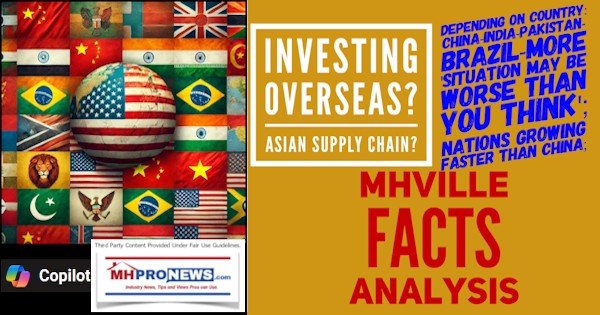

6) Even Biden-era Commerce Secretary Gina Raimondo said that China had become “unINVESTABLE.” But Obama-Biden (D), Biden-Harris (D), Bush-Cheney (R) had all tolerated or allowed what Clinton-Gore (D) pushed through (see #2 above).
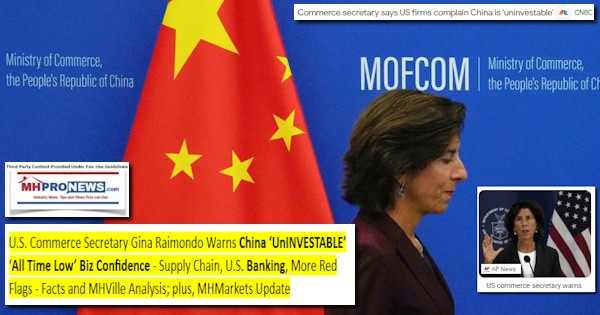
7) It wasn’t like the U.S. didn’t know what trade with China or Vietnam was like. While mainstream media could have done a better job of presenting what this meant, there were some reports that highlighted what was occurring.

8) Given that numbers in mainstream media knew what was taking place and did for years, certainly political leaders knew what offshoring was doing to the U.S.A. and millions of Americans too. Elected and appointed officials are supposed to be working on behalf of the public interest. But in reality, as polling for years has suggested, the system has been rigged to favor what Steve Bannon called “the elites” in that video clip from left-leaning PBS Frontline shown above.

9) Those who have been conditioned by years of what amounts to seemingly endless Orwellian “Two Minutes of Hate” style propaganda aimed at smearing and undermining Trump are actually aimed as much or more at his agenda and how it would upend the plans of those who have ‘rigged the system.’ Trump has said that, sometimes using the words, ‘they [i.e.: the elites, the insiders, those who have rigged the system] are coming after you [i.e.: the public], I’m just standing in their way. Trump has been called a “class traitor.” As MHProNews reported last year via the Masthead, Wall Street largely backed Biden-Harris (D) because they feared that Trump would ‘cut into their profits.’

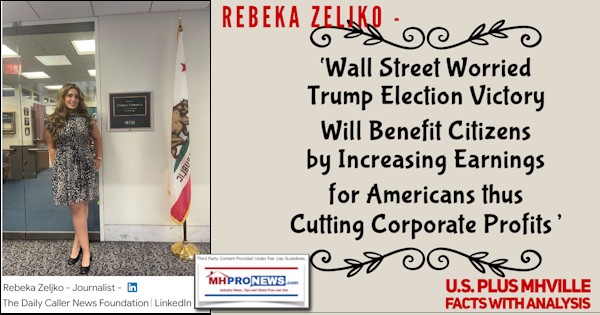
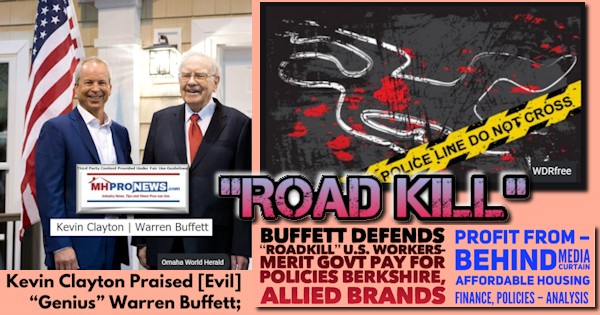
10) Whatever one may think of Warren Buffett, he apparently knew years in advance of Trump’s formal announcement in 2015 that he was running for the presidency, that Trump was a problem for the interests of men like himself.
Left-leaning Microsoft Bing’s Copilot noted that Buffett publicly slammed Trump in 1991 for his use of leverage.
For example, in a 1991 lecture, Buffett criticized Trump’s overreliance on leverage and his financial decisions, stating that Trump was “terrific at borrowing money” but often overpaid for properties, leaving him in significant debt.1
That article by Market Realist that Copilot pointed to above said this.
The billionaire investor [Buffett] has taken multiple swipes at Trump over the years. In 2019, in an annual shareholder letter, he criticized Trump’s policies and said that no one person should claim credit for the U.S. economy’s good health.
Note that the Market Realist article failed to mention any of the obvious counter-arguments to its various hits on Trump. It was part of a wave of articles in much (not all) of mainstream media that attempted to vilify Trump with what former Democratic House Majority Leader Nancy Pelosi called ‘the drive by and wrap up smear.’ While smear tactics are centuries old, their use (abuse) by the media and amplified by social media are ways of amplifying concerns while deflecting from or avoiding entirely counter-arguments. More on that topic as it applies to MHVille in a recent incident will be part of tomorrow’s Sunday Weekly Headlines in Review.
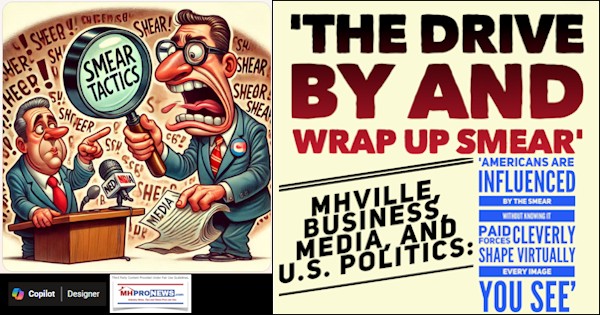
11) In addition to the Copilot/Market Realist hits, left-leaning Google’s Gemini made these added observations about Buffett and Trump.
-
-
In December 2015, during an Omaha campaign event for Hillary Clinton, Warren Buffett made remarks that were widely seen as digs at Donald Trump. Notably, he made light of Trump’s tendency to emphasize his own intelligence.
-
Buffett also made a point of mentioning his own time at Wharton School, where Trump also attended, but that Buffett left after two years. This was interpreted as a way of diminishing the value that Trump placed on his Wharton education.
-
Additionally, Buffett critiqued the Republican debates at the time, comparing them to “vaudeville,” which was also taken as a shot towards Donald Trump.
-
This event shows that before the actual presidential election year, Warren Buffet was making public remarks that were negative towards Donald Trump.
-
12) But what precisely has Buffettism and the behavior of similarly minded companies that were clearly offshoring collectively millions of jobs while posturing being for the working man or middle class – what did that do for the American working and middle classes? The rich got richer by comparison to the other classes. Incomes no longer kept up with the rising cost of living.


Buffett backed candidates like Obama-Biden (D) (2008-2012), Clinton-Kaine (D) (2016), Biden-Harris (D) (2020) how did those winners do vs. Trump in terms of benefits (or harm) to most retires, working class, and middle-class Americans?
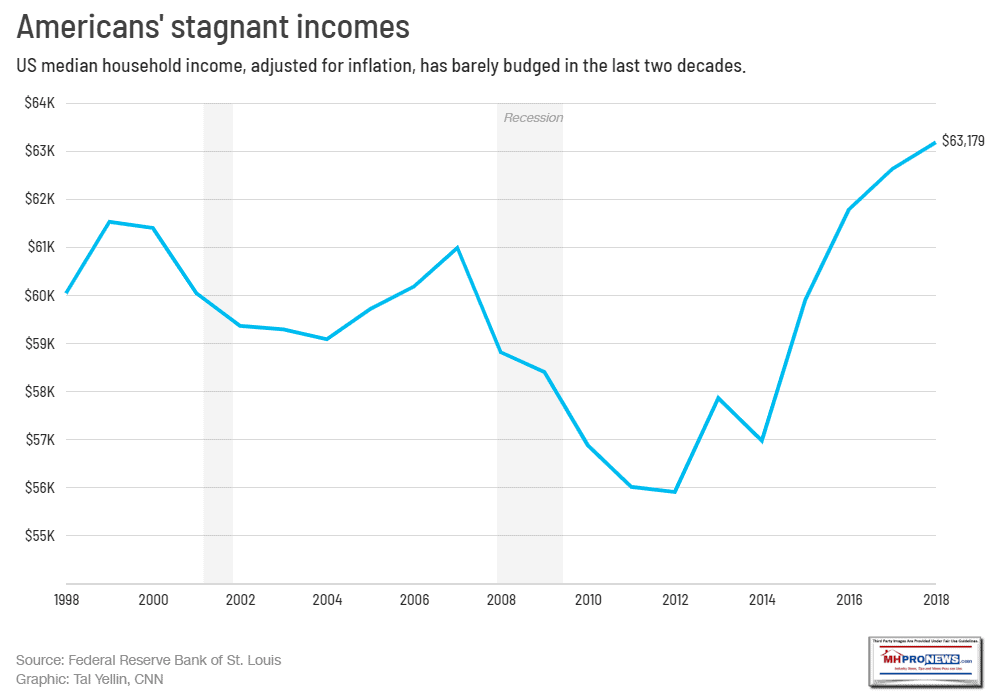
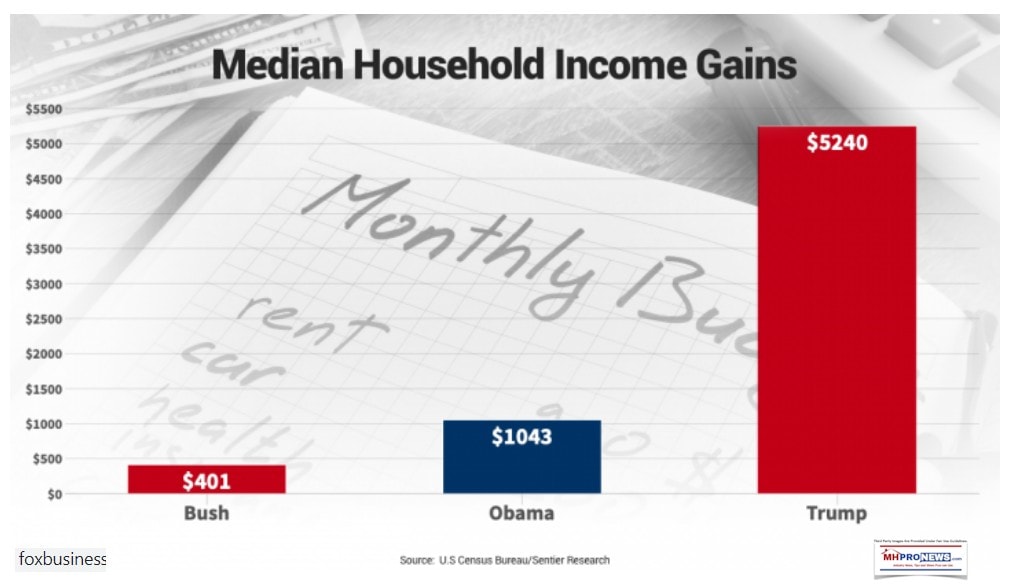
Biden-Harris and their Democratic allies created the worst inflation in decades. Who said? Curiously, then House Majority Whip James Clyburn, who said that Democrats knew they were going to fuel inflation with their policies. Millions were plunged into poverty. Homelessness rose, per Democratic federal officials own data. Housing affordability plummeted.
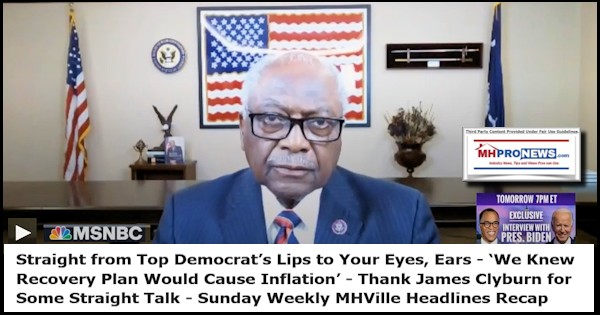

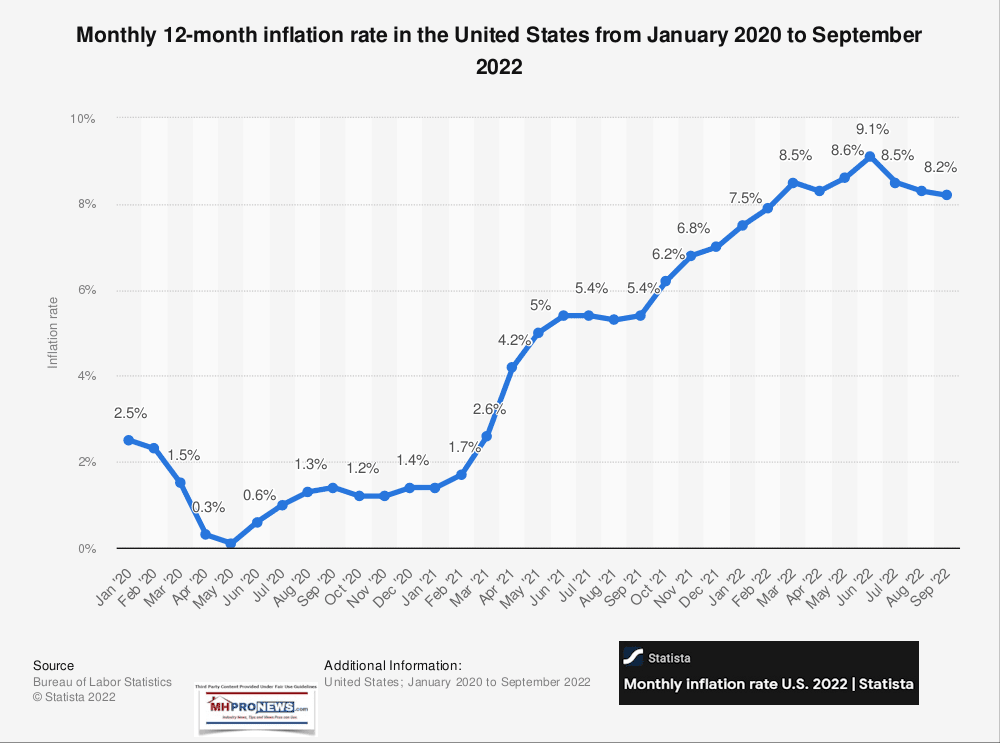

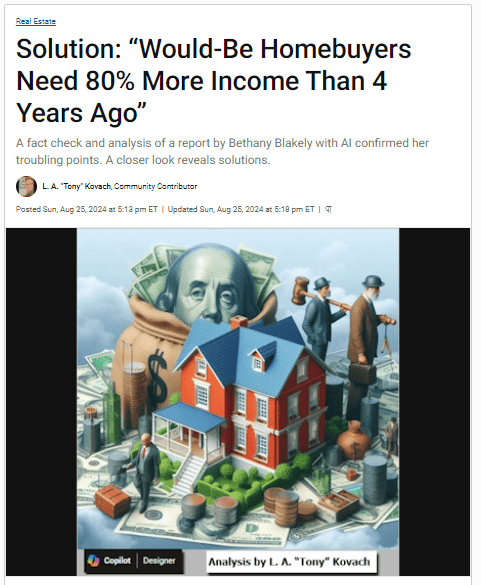
While Buffett sat out a formal endorsement in 2024, his ally Bill Gates strongly backed Kamala Harris and Tim Walz (D) vs. Trump-Vance (R).
All of these items influenced the U.S. housing market, including manufactured housing. Manufactured housing is operating at more than a 70 percent lower rate in 2024 than it did in 1998.
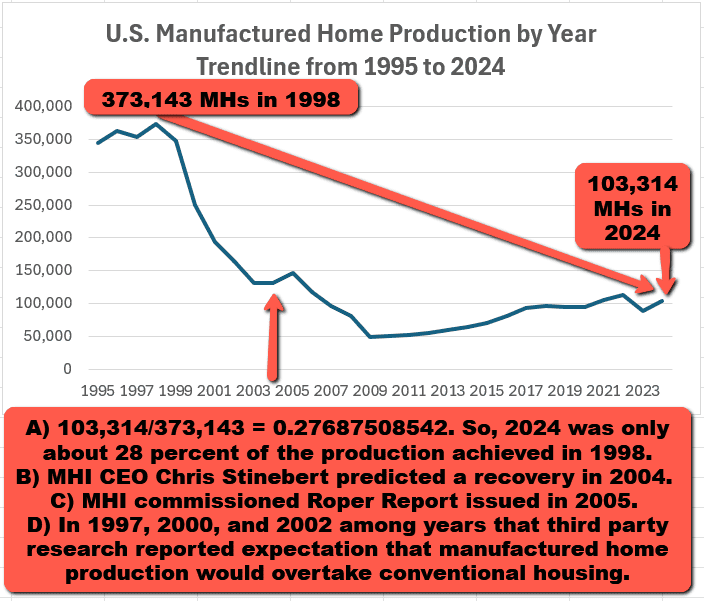
Not only did the total production of manufactured homes drop sharply, the share of the housing market as measured by “starts” that manufactured housing obtained has dropped sharply vs. what was achieved in the 1990s or the early 1970s, or for that matter during the entire period of the HUD Code until the 21st century.
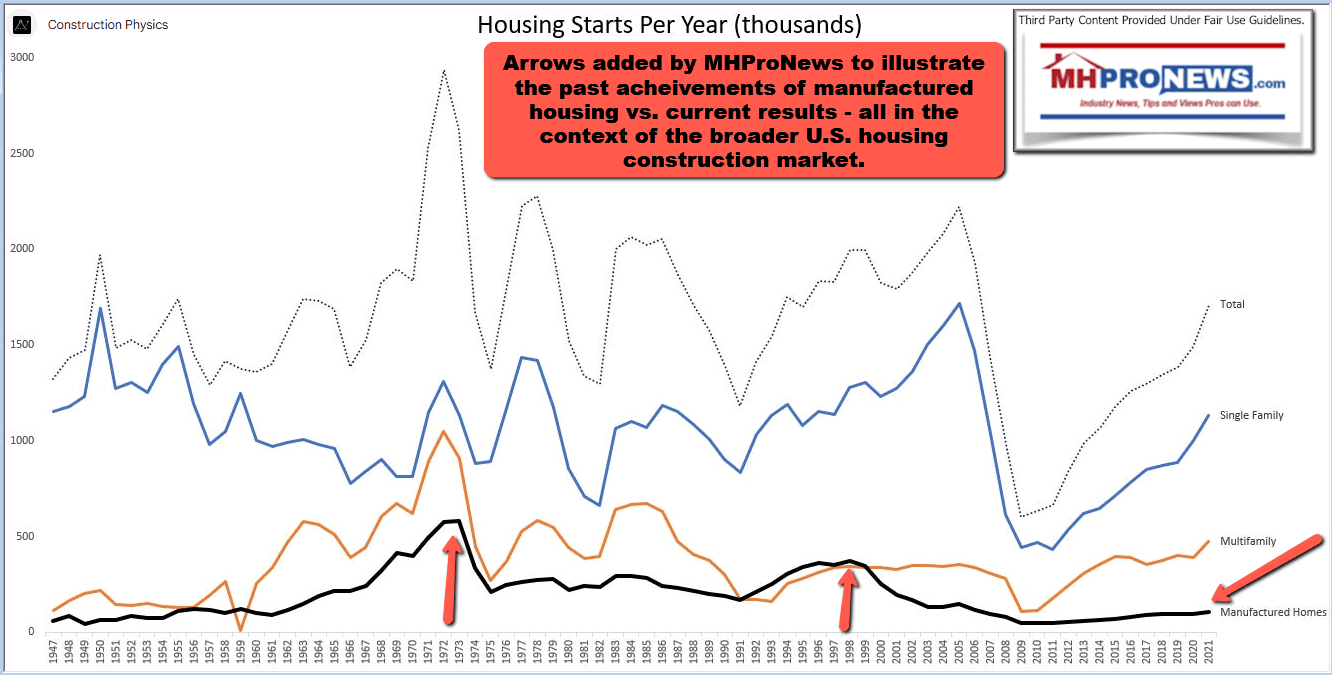
Or these charts that reveal the same pattern.
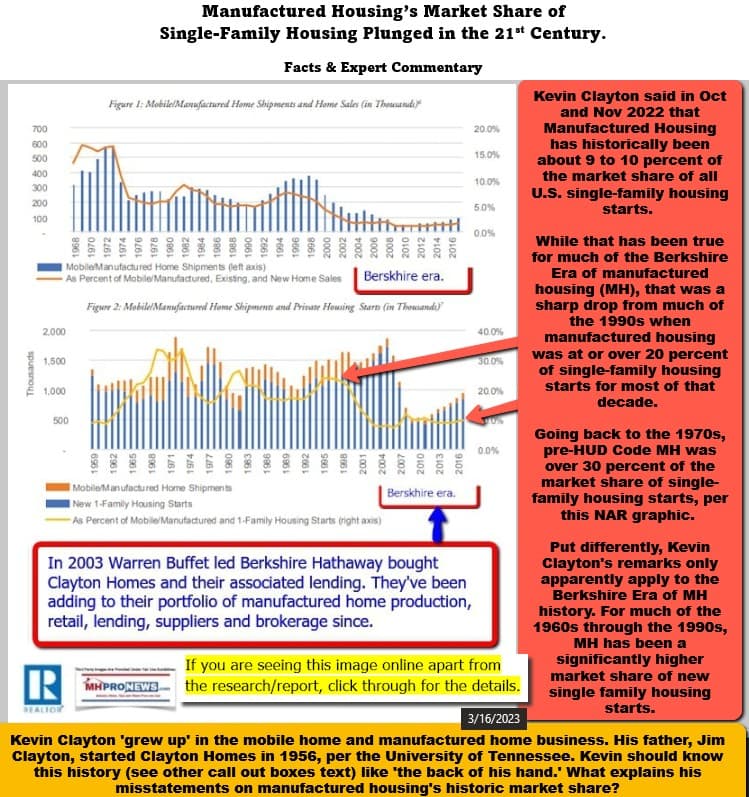
Which brings us to the next item.
13) The remarks below by Vice President J.D. Vance, clearly a rising MAGA-Republican star and potential future GOP presidential prospect, put it well when he said that he was “hard pressed” to think of a time in 40 years when it was so hard for American citizens to afford a home. That inspired the still popular (per the latest MHProNews site data) item below that presented the notion of J.D. Vance’s insights proverbially meeting the insights of Arkansas Manufactured Housing Association (AMHA) executive J.D. Harper topic unpacked below.

14) It isn’t just the broader U.S. economy that has been ‘looted, pillaged, raped and plundered,’ as Roberts-Stern and Trump have all said (see Part I). Manufactured housing itself has been proverbially ‘looted, pillaged, raped and plundered’ too.
That’s not an accident. It is a feature of the globalist methods promoted by Buffett, Gates, and scores of billionaires that Buffett has referred to as “his class” that waged (think that such warfare is intentional) “class warfare.”
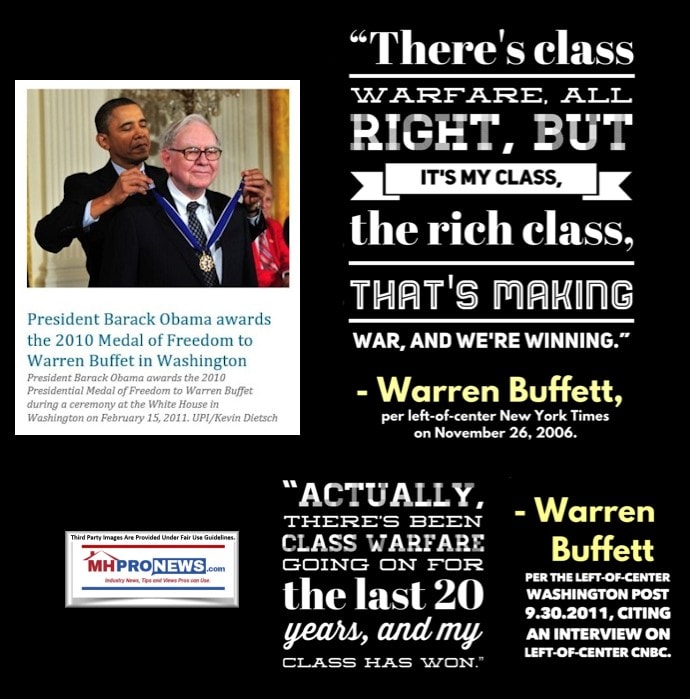
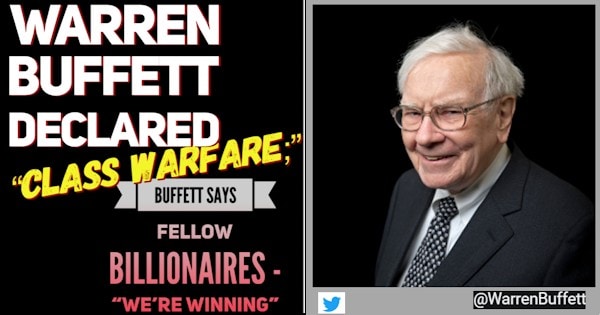
Keep in mind that not only did Buffett say what he did about class warfare, Citi’s leaked document on the rise of the plutonomy revealed a similar insight.


15) Perhaps everyone who is reading this article has driven by, or has personally seen and experienced, a site just like the photo above depicts.
While manufactured housing has arguably suffered more than conventional housing has, there is nevertheless a case to be made that manufactured home production has suffered as a result of insiders and market manipulation that benefits a few at great expense to the many. Those are reasons why the systemic changes that Trump, Roberts, and Stern have each in their own ways outlined and are promoting and working for matter to MHVille and the U.S. more broadly. See the following reports for details. That will be a wrap for today’s report. ##

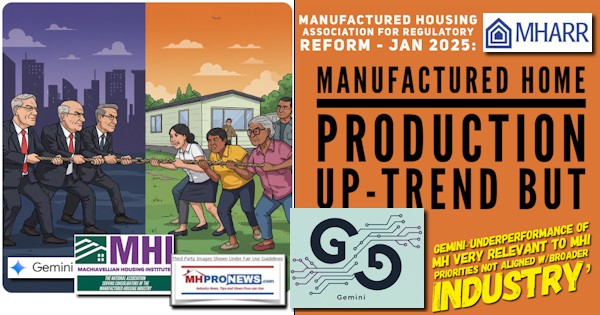


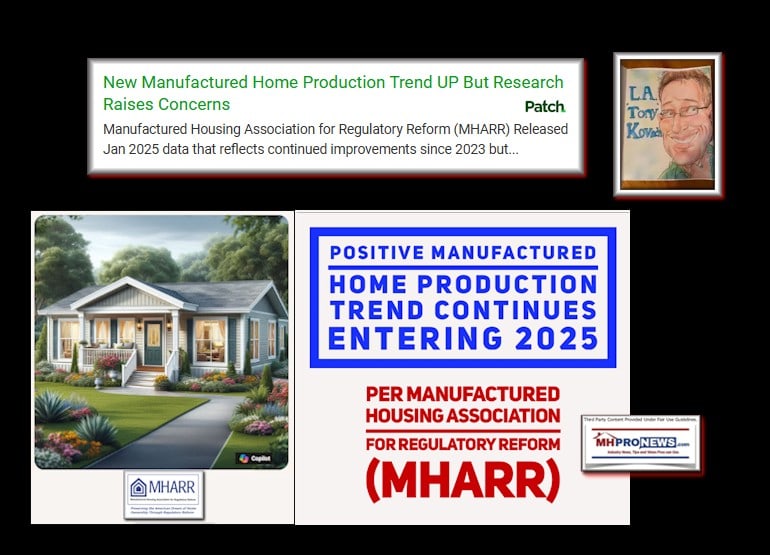



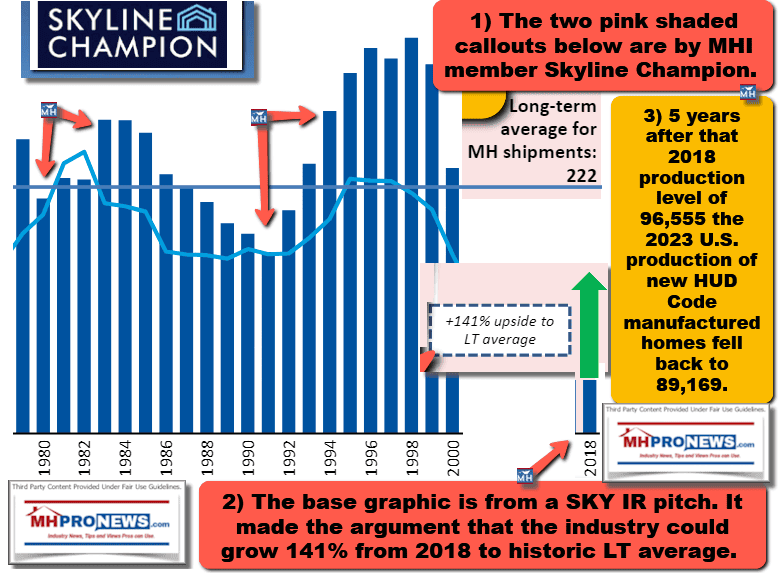




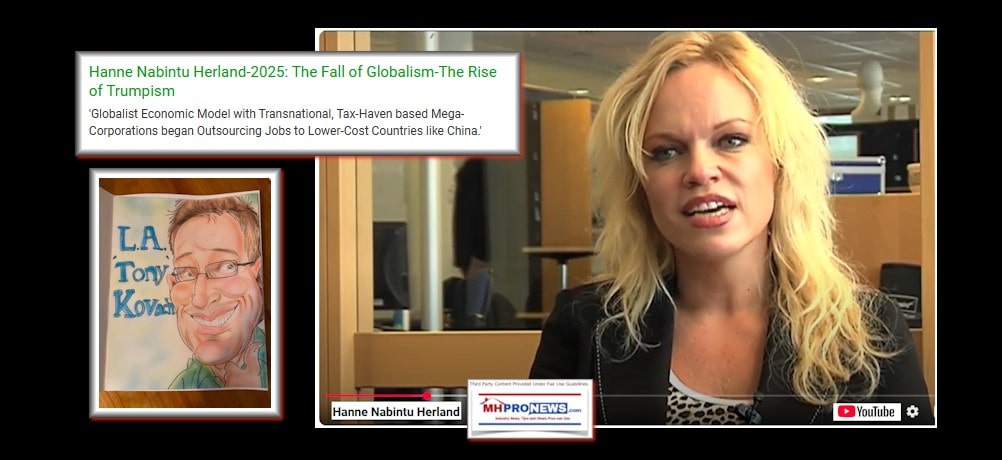

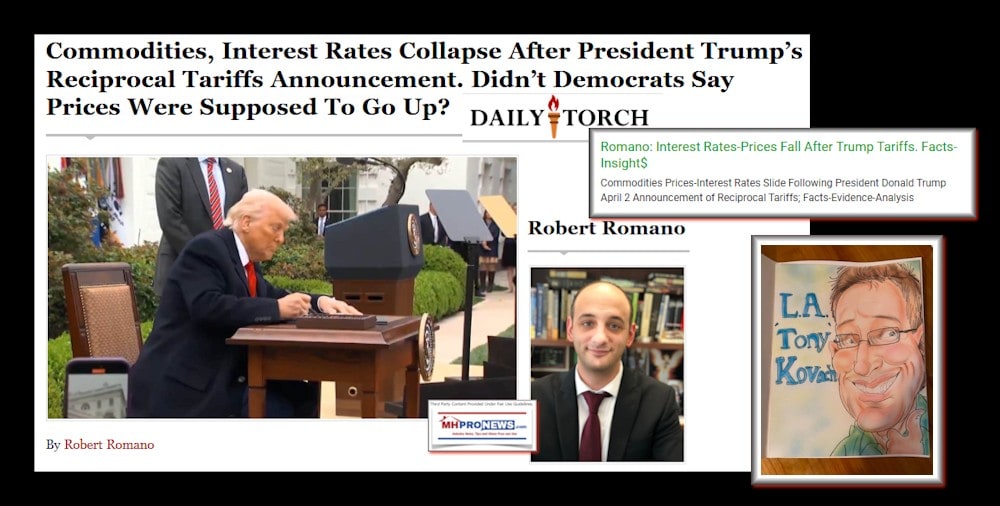

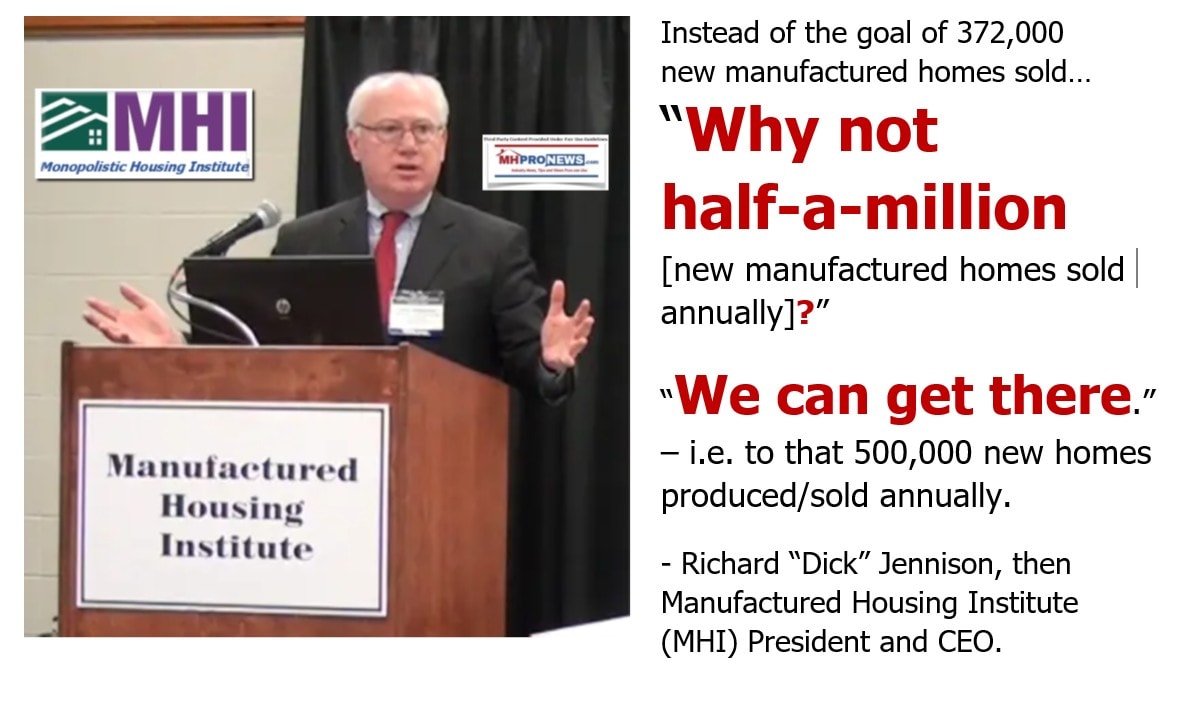


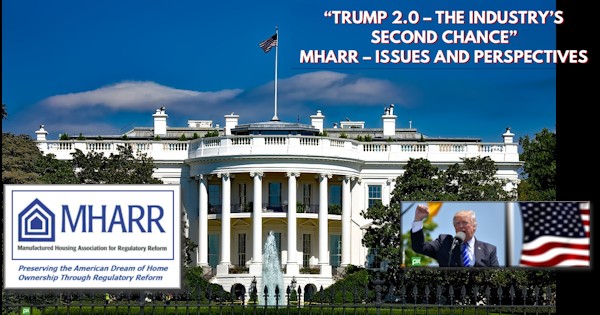

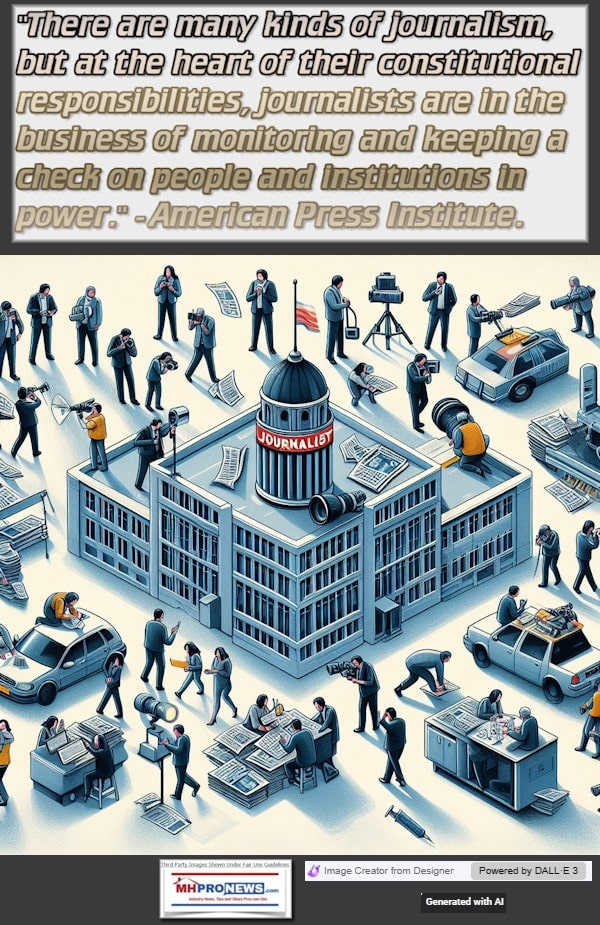




Again, our thanks to free email subscribers and all readers like you, as well as our tipsters/sources, sponsors and God for making and keeping us the runaway number one source for authentic “News through the lens of manufactured homes and factory-built housing” © where “We Provide, You Decide.” © ## (Affordable housing, manufactured homes, reports, fact-checks, analysis, and commentary. Third-party images or content are provided under fair use guidelines for media.) See Related Reports, further below. Text/image boxes often are hot-linked to other reports that can be access by clicking on them.)

By L.A. “Tony” Kovach – for MHProNews.com.
Tony earned a journalism scholarship and earned numerous awards in history and in manufactured housing.
For example, he earned the prestigious Lottinville Award in history from the University of Oklahoma, where he studied history and business management. He’s a managing member and co-founder of LifeStyle Factory Homes, LLC, the parent company to MHProNews, and MHLivingNews.com.
This article reflects the LLC’s and/or the writer’s position and may or may not reflect the views of sponsors or supporters.
Connect on LinkedIn: http://www.linkedin.com/in/latonykovach
Related References:
The text/image boxes below are linked to other reports, which can be accessed by clicking on them.’

